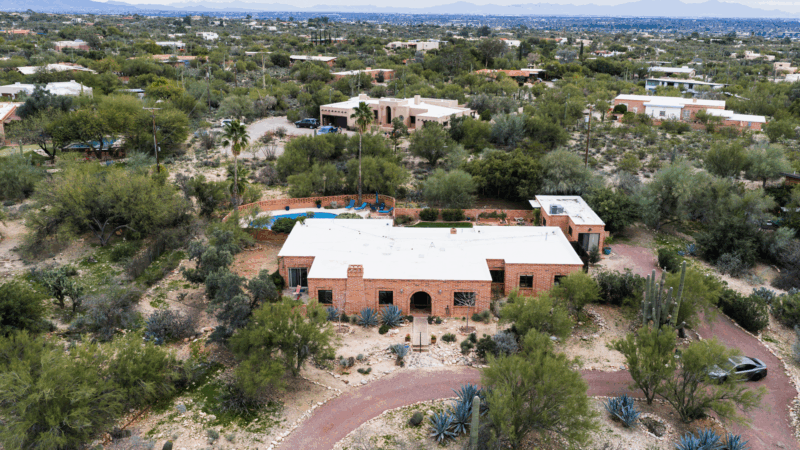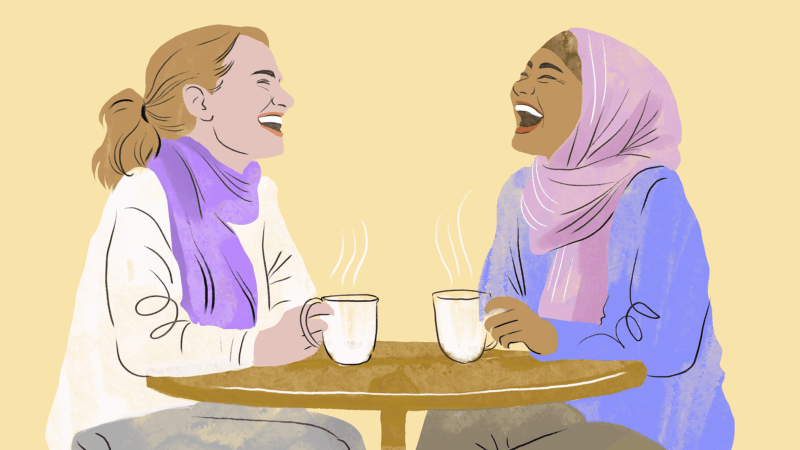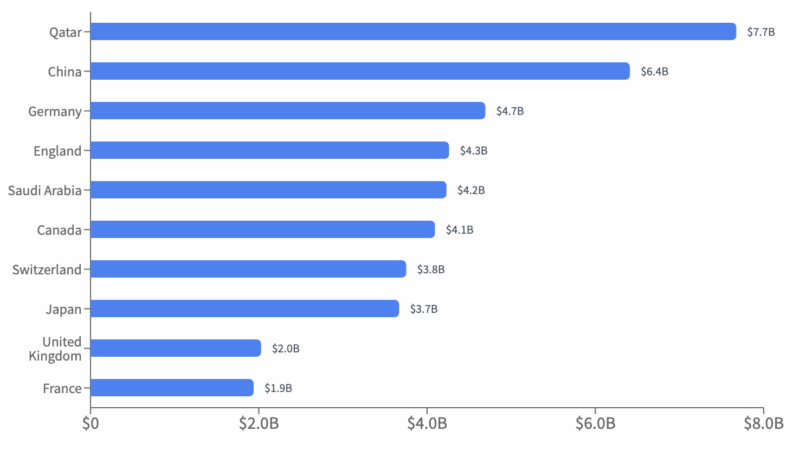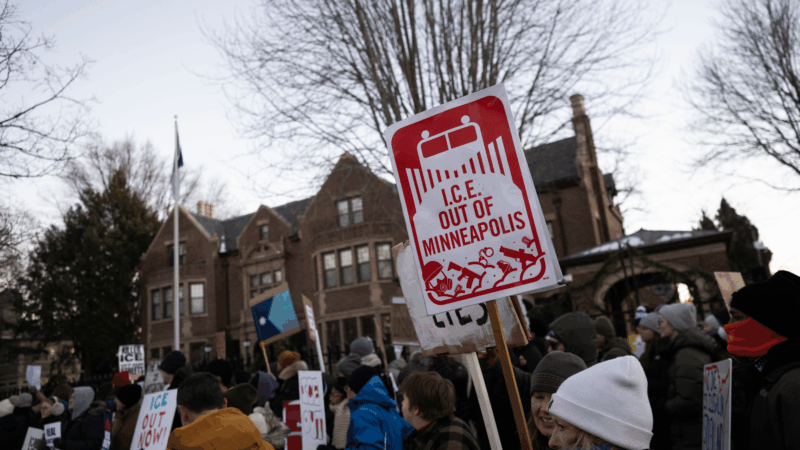Life After Prison: Victims Face Tough Road Too
A warning: this story may not be suitable for children.
All this week in our series Life After Prison we’ve been exploring the challenges inmates face rebuilding their lives after serving their sentences. It’s part of a reporting project in partnership with AL.com and the Center for Investigative Reporting. But for every prisoner there’s a victim and often victims can be on the sidelines. One crime victim offers a glimpse of the issue.
It was September 2004, a Saturday, and Gail McLaughlin had scheduled several people to look at a home she was renting. It was like an open house.
“People were coming in and filling out applications to rent the house and looking at it,” McLaughlin said.
Things were finishing up and McLaughlin was getting ready to leave when a car pulled up. In it were two young men who had been by to look at the house earlier. One put a gun in McLaughlin’s face. He told the other one to tie her up. They took her purse and grabbed her ATM card. The man with the gun sent the other to go get cash.
“Course as soon as the young man left, I knew what was gonna happened,” McLaughlin said.
The remaining man took her into a room and raped her.
“I remember laying there thinking just hurry up and get it over with and get on with what you want to do,” said McLaughlin. “If you want to shoot me, whatever you want to do. Just hurry up.”
He didn’t shoot her but put McLaughlin in a closet and closed the door. Her hands had become untied in the scuffle, so when she couldn’t see feet beneath the closet door, she took off running to a church down the street.
“I’m just thinking, ‘God, I’m gonna get him. I don’t care what it takes. He’s not gonna get by with this.'” said McLaughlin.
She would face long odds. The Justice Department estimates only 3 percent of rapists ever see the inside of a prison.
There happened to be people at the church that Saturday who assisted McLaughlin. She called 911 and police came. They went to UAB Hospital and connected her with a crisis center. McLaughlin says many responders and medial personnel were great, but the police officer who arrived initially was not.
“He was a very unkind, uncaring human being,” said McLaughlin. “Could of cared less.”
Former victim advocate and Sam Houston State University professor Kathy Latz says some victims do experience negativity from people who are part of the system. Although she says she’s that’s improved in recent years. Victims then can be thrown into a law enforcement and legal world that’s foreign.
“It can be daunting and unfamiliar and in addition to that the process tends to be very long,” said Latz.
For Gail McLaughlin her process continued by talking to detectives several times and identifying a suspect from a photo line up. A few weeks later police picked up 25-year-old Angelo White. With a suspect in custody, next came a preliminary hearing, a bail hearing, and grand jury testimony. At the bail hearing McLaughlin found herself in the same room as White. She says he was staring a hole through her.
“So I just proceeded to move where I was looking straight at him and I wouldn’t take my eyes of him,” McLauhglin said. “We had a stare down because I was going to let him know, you weren’t gonna do this to me. And I will see you in hell.”
Despite this anger and this focus, McLaughlin says her brain was in a fog. She’d go to work sporadically. She couldn’t write a check to pay her bills. She washed her iron in the washing machine.
“I don’t know how it got in there. Don’t remember seeing it,” said McLaughlin. “But the iron still works to this day. I still have it. It’ll still work. [It’s] a good iron.”
Those symptoms don’t surprise UAB Clinical Psychologist Josh Klapow. He says crime is a trauma and the surprise nature of crime makes it more intense. Even something like a burglary where there’s no physical harm sends a message.
“[That message is] I’m not totally in control,” said Klapow. “Something has happened that I can’t control and I think more importantly emotionally it sends this message it might happen again.”
Klapow says victims can bounce back but it’s difficult. With every question asked by police or a family member, they relive the crime and can feel re-victimized.
“Even with the best of intent, we’re sort of forcing the victim to deal with this in a manor and in a time frame that is not their own,” Klapow said. “It may be necessary but it does make it more challenging.”
Gail McLaughlin had to relive the crime when the case went to trial. She says court was awful as she watched 12 jurors decide whether they believed her.
The courtroom brings up an often overlooked dynamic. Perpetrators have constitutionally recognized rights such as trial by jury or cruel and unusual punishment. But victims don’t have similar rights.
Will Marling, executive director of the advocacy group National Organization for Victims Assistance, says 33 states, including Alabama have constitutional protections for victims. But not the federal constitution. These are things such as a right to dignity, respect, information, assistance and compensation. There is an effort to add a Victims’ Rights Amendment to the constitution, which Marling says would create continuity across the country. He adds rights for victims don’t take away rights for the accused.
“It really isn’t zero sum,” said Marling. “It’s rights that stand beside each other that in the course of due process protect each party appropriately.”
Gail McLaughlin believes victims don’t always get a fair shake, but for her it turned out okay. The jury returned a guilty verdict. He case is among that 3-percent. Angelo White was sentenced to life without parole under Alabama’s habitual offender law.
McLaughlin says the hard times lasted for several years after the trial and the events have left their mark.
“I don’t trust people,” McLaughlin said. “I tried to always give everybody the benefit of the doubt and I don’t give people the benefit of the doubt anymore.”
But through medication and counseling she’s doing all right. She has a supportive family. Her boyfriend who was with her then is still around. She volunteered as a rape response advocate. Life’s not normal, but it’s all right.
Jordan Stolz opens his bid for 4 golds by winning the 1,000 meters in speedskating
Stolz received his gold for winning the men's 1,000 meters at the Milan Cortina Games in an Olympic-record time thanks to a blistering closing stretch. Now Stolz will hope to add to his collection of trophies.
How the FBI might have gotten inaccessible camera footage from Nancy Guthrie’s house
Last week, law enforcement said video footage from Nancy Guthrie's doorbell camera was overwritten. But the FBI has since released footage as Guthrie still has not been found.
How to hone your ‘friendship intuition’
Friendship expert Kat Vellos shares tips on how to make a new friendship stick, including what to do together, how often to hang out — and what to do if the vibes just aren't there.
US Colleges received more than $5 billion in foreign gifts, contracts in 2025
New data from the U.S. Education Department show the extent of international gifts and contracts to colleges and universities.
Free speech lawsuits mount after Charlie Kirk assassination
Months after the killing of Charlie Kirk, a growing number of lawsuits by people claim they were illegally punished, fired and even arrested for making negative comments about Kirk.
Swing voters in Arizona say they want to see ICE reformed
Concerns about the tactics of federal immigration agents remain front of mind for some key voters who supported President Trump in 2024.







